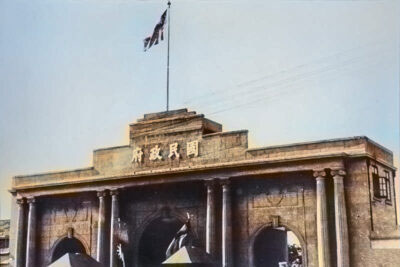
Established in 1935 to mobilize the resources of the country in order to resist the Japanese aggression, the National Resources Commission (Quanguo ziyuan weiyuanhui 全國資源委員會) may be considered as the first technocratic institution in China. It actually took off from the more secretive National Defense Commission (Guofang sheji weiyuanhui 國防設計委員會) established in October 1932 under the Military Commission (Junshi weiyuanhui 軍事委員會) to prepare the country for a possible confrontation with Japan. The NRC was placed under the direct authority of the Chinese government, it employed thousands of engineers and other experts in various fields of expertise between 1935 and 1949. The NRC offers an ideal case study for examining the concrete work of experts and their mediating role between power (Chinese government) and civil society (industrialists, bankers, social workers, local organizations – the myriad of actors that played a crucial role in producing and harnessing national resources).
The case of the NRC illuminates how Republican institutions capitalized on a new brand of (mostly American-trained) experts and new forms of expertise to meet with the urgent needs of wartime China. Relying on the archives of the Commission (scattered across the Ministry of industry (Archives No2 in Nanjing) and Taipei historical archives – Guoshi guan) and the rich but unpublished materials of the broad survey for experts that the commission conducted in the 1930s — it published only a Who’s Who of Chinese engineers in 1941 — we will try to identify the experts that worked for the commission, reconstruct their social-professional background, trace their life trajectory and highlight informal patterns of relations that might account for their recruitment and career path. Another line of inquiry consists in examining experts in action with a view to assess their degree of agency towards the state apparatus. How far did they “influence” political decisions and contribute to policy-making during the Nationalist era? Conversely, how did they use their position within the NRC to pursue their own goals and strengthen their social status?